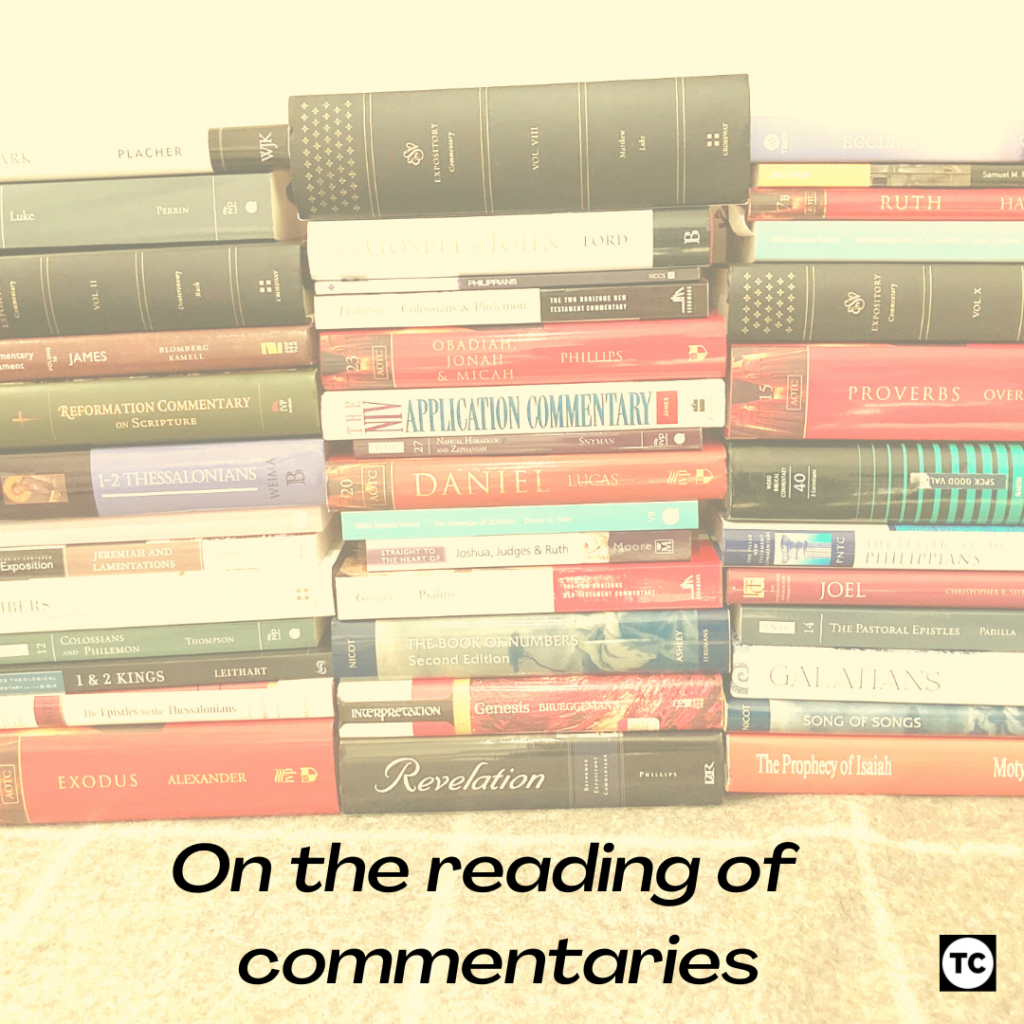
Last year I read 45 commentaries (out of just over 200 books of various kinds) – and I’m not a pastor. Thus far this year (as of 21st June!) I’ve read 27 more, cover to cover. As someone who works in publishing, specifically as editorial director at IVP in the UK, reading books is a part of my job, and reading commentaries relates to my role at present internally managing IVP/Apollos’s ‘live’ series. More importantly than that profession, I’m a follower of Jesus who finds it very helpful to have a personal quiet time every day, which includes prayer, reading Scripture, reading a devotional book, and (and this is unusual, so far as I can tell) reading commentaries. I read commentaries in that reading time in order to dig deeper into Scripture, to be transformed by the renewing of my mind, and to understand the Big Bible story better (and understand the individual books!).
Commentaries tend not to be designed to be read straight through. They are essentially concieved and published as reference works – that pastors and scholars and other readers will pick up when they want to preach/study/write/think around a particular passage. For those preachers who preach verse by verse through a book of the Bible, then a commentary might be read all the way through – but it is likely that multiple commentaries will be on the desk, literally or digitally, and so the odds are smaller. On the occasion that I do preach, I’ll spend some time with the text on it’s own, before looking at commentaries I own physically and digitally, particularly if there’s a tricky thing or things going on. On other occasions I might use commentaries as secondary sources for conference papers, research projects at work, and I do hope to one day pursue a PhD in Systematic Theology, which would hopefully include some commentaries!
However, as alluded to above, the primary way I’m reading commentaries at the moment (Barring a major career change into academia, or calling into ministry) is cover to cover devotionally.
As a friend asked: Have you written anywhere on what your devotional commentary readings look like? I mean… how are you reading? What makes it “devotional”? Here’s my attempt to answer that question, lightly edited from the original twitter DM.
Fundamentally, I’m basically not using them for reference or study or preparation (For a sermon or piece of writing) but reading them ‘as if’ they were for edification. This is probably not how most commentaries are written or concieved. In my personal opinion a lot of quiet time notes and devotional books are not that good – particularly in terms of their meaningful engagement with the biblical text, let alone awareness of text-critical issues, context, and the state of scholarly discussionp. So I use commentaries as a friend to read a book of the Bible with. Sometimes – most notably with David fords ‘theolgocial commentary’ on John [I’ve been working on a review of this on and off for a long time) I end up arguing with it and so it gets demoted out of devotional time and into general reading time. I guess I’m treating them as books and reading straight through.
That friend kindly asked a follow-up question: Sounds great. Are there any particular series formats that you find more or less conducive to that kind of reading?
Jim Gordon
Eugene Peterson in his ‘Take and Read’ annotated reading list, has a section on commentaries. He reads them like novels, as in his view, a good commentary tells the story of the text. I too read commentaries cover to cover. I know what is meant be reading them devotionally, though I tend not to make such an inner distinction. For myself I find that engaging with informed, responsible and honest exegetical writing has the effect of opening the mind to truth, the heart to the love of God, and the conscience to the call to obedience. Thank you for your blog Thomas, and your own honesty, enthusiasm and evident commitments to scholarship as one of the ways we serve God effectively.